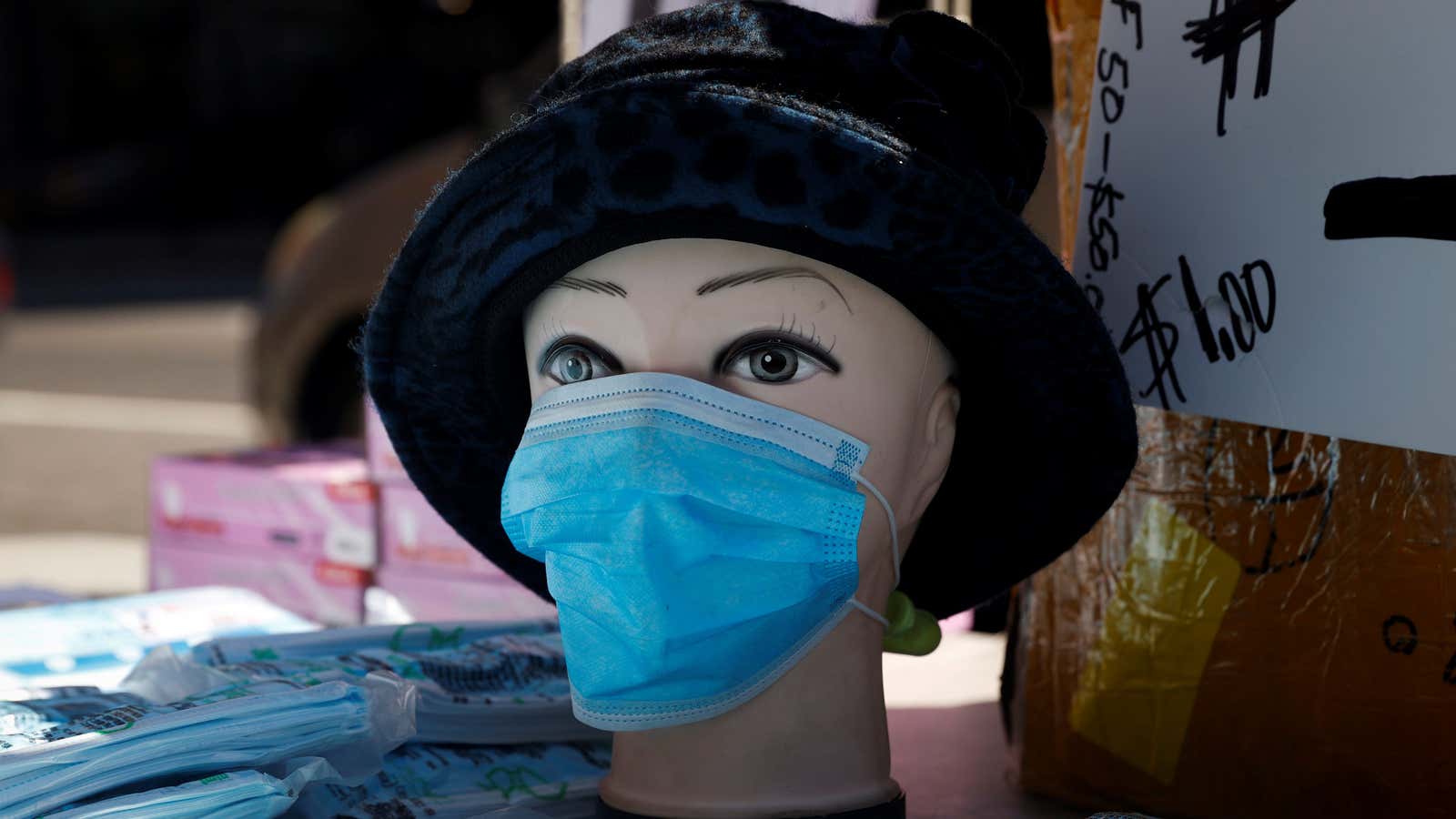For weeks, US health authorities were clear in their message to the general public about who should and shouldn’t wear a face mask in the ongoing Covid-19 outbreak: If you were well and showing no symptoms, they recommended that you not wear a mask.
Now the US Centers for Disease Control and Prevention are recommending everyone wear a mask “in public settings where other social distancing measures are difficult to maintain,” such as grocery stores, to slow the virus’s spread. The type of masks it’s apparently ready to recommend are cloth masks made from common fabrics such as cotton. More effective N95 respirators and surgical masks, which use specialized textiles, would continue to be reserved for healthcare workers and first responders. They’re already in critically short supply with the US unable to meet demand for those most in need, let alone the general public.
The rush on medical-grade masks has left hospitals and medical workers competing for them on the open market with everyone else. Price gougers have taken advantage, while Amazon has informed third-party sellers it won’t let them sell N95 masks, surgical masks, and other medical equipment to the general public.
The US gets much of its mask supply from China—the world’s largest producer of medical masks—but that supply has largely dried up. While China has said it hasn’t banned mask exports, North American suppliers have reported not being able to get shipments from China for weeks. Data provided to Quartz by Panjiva, a global trade platform that tracks shipping records, found seaborne shipments of medical masks to the US plummeted in March, primarily reflecting a drop in supply from other countries, notably China.
One reason for the steep drop is that Panjiva’s data doesn’t include air freight. Companies—and as of March 29. the federal government—have begun airlifting supplies to cut their delivery time.
As more supplies arrive on planes from Asia, the Federal Emergency Management Agency (FEMA) will distribute them first “to medical distributors in areas of greatest need; then, the remainder will be infused into the broader US supply chain,” according to an agency spokesperson. “Prioritization will be given to hospitals, health care facilities, and nursing homes around the country.”
The US is also distributing masks to health facilities from the Strategic National Stockpile, a reserve maintained in case of public health crises. But even the stockpile contains far less than is needed. The FEMA spokesperson said in a statement the agency knew from planning scenarios the stockpile alone couldn’t meet the requirements at state levels. It added, “FEMA and our interagency partners are working to meet demands for supplies through new acquisition, [Department of Defense] allocation or Strategic National Stockpile sources.”
The government has prodded US manufacturers to ramp up mask production, promising to buy any excess and allocating $16 billion in a coronavirus-relief package to build up the supply of masks, respirators, and other equipment in the national stockpile. 3M and half a dozen smaller companies are now making about 50 million N95 masks in the US every month, the Wall Street Journal reports. Still, it’s well short of the 300 million the Department of Health and Human Services estimates are needed monthly.
The industrial machines required to make medical-grade masks, or even to create the textiles for them, are complex and expensive. When Prestige Ameritech, the largest domestic producer of surgical masks and respirators in the US, scaled up its own production after the H1N1 outbreak, it took four months for it to build its new machines, according to NPR, which said they’re “as long as a school bus and cost as much as $1 million.” To keep costs down, medical manufacturers largely outsourced mask production to Asia, especially China, more than a decade ago.
In the current crisis Prestige Ameritech says it has gone from making 250,000 masks a day up to 1 million. If you call the company right now, an answering message says, “If you are looking to place a one-time, high-volume order of masks or respirators we cannot help you.” The company is only serving hospital customers, it adds, and not selling to individuals at the moment.
Update: This post has been updated to reflect the CDC’s newest guidance.
